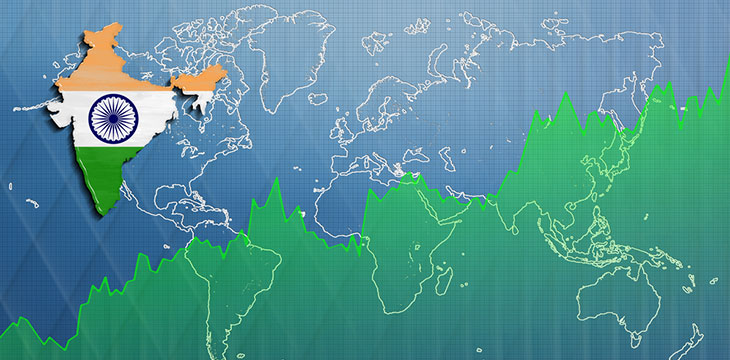|
Getting your Trinity Audio player ready...
|
India has announced a collaboration with international financial institutions in its attempt to create a wholesome regulatory framework for the nascent digital asset industry.
The country is mulling a partnership with the International Monetary Fund (IMF) and the Financial Stability Board (FSB) in its quest for an international regulatory framework, reports Kitco News. The latest move stems from its ascendency as G20 president back in November 2022 as it looks to lead the coalition of nations over the coming months.
“We have reached out to IMF, and IMF is working on the paper with us, to bring in the aspects of the monetary policy, the macroeconomic aspects, and the policy approach to crypto assets,” India’s Department of Economic Affairs Secretary Ajay Seth said.
“The Financial Stability Board has proposed forming a crypto asset working group and we are equally part of that,” Seth added.
As president of the G20, India will steer the agenda of the group for one year while also serving as the host of its summits. India’s government officials like Finance Minister Nirmala Sitharaman have confirmed that one of its primary objectives as G20 President will be to push for a unified global approach towards virtual currency regulation.
Indian officials say the reason for the push is to prevent “regulatory arbitrage” from bad actors while protecting the interests of consumers. Sitharaman noted in a speech that regulation “has to be a collective action because technology does brook any borders” and that one country cannot single-handedly make effective regulations.
India’s attempt to launch a national virtual currency law has been put on hold, with regulators citing the importance of achieving a global consensus before proceeding.
Bracing for the sternest of regulatory regimes
Analysts are predicting tough regulations for virtual currencies under India’s G20 leadership, given the local treatment of the asset class. Traditionally, Indian regulators have considered virtual assets to be a threat to the financial systems and have considered issuing a blanket ban.
While plans for a blanket ban have not come to fruition, the government has imposed one of the sternest tax policies on the industry. At the moment, investors have to pay a 30% tax on gains with the addition of a 1% Tax Deducted as Source (TDS) on all transactions, while pleas for a reduction have been ignored.
The IMF has also been traditionally hostile towards virtual currencies in the past, going as far as calling it a recipe for global financial disaster. Enthusiasts can only watch with bated breath to see where the regulatory pendulum will swing regarding virtual currencies.
Watch: India will be the biggest blockchain nation in 5 years – IPv6 Forum’s Latif Ladid

 03-03-2026
03-03-2026 




